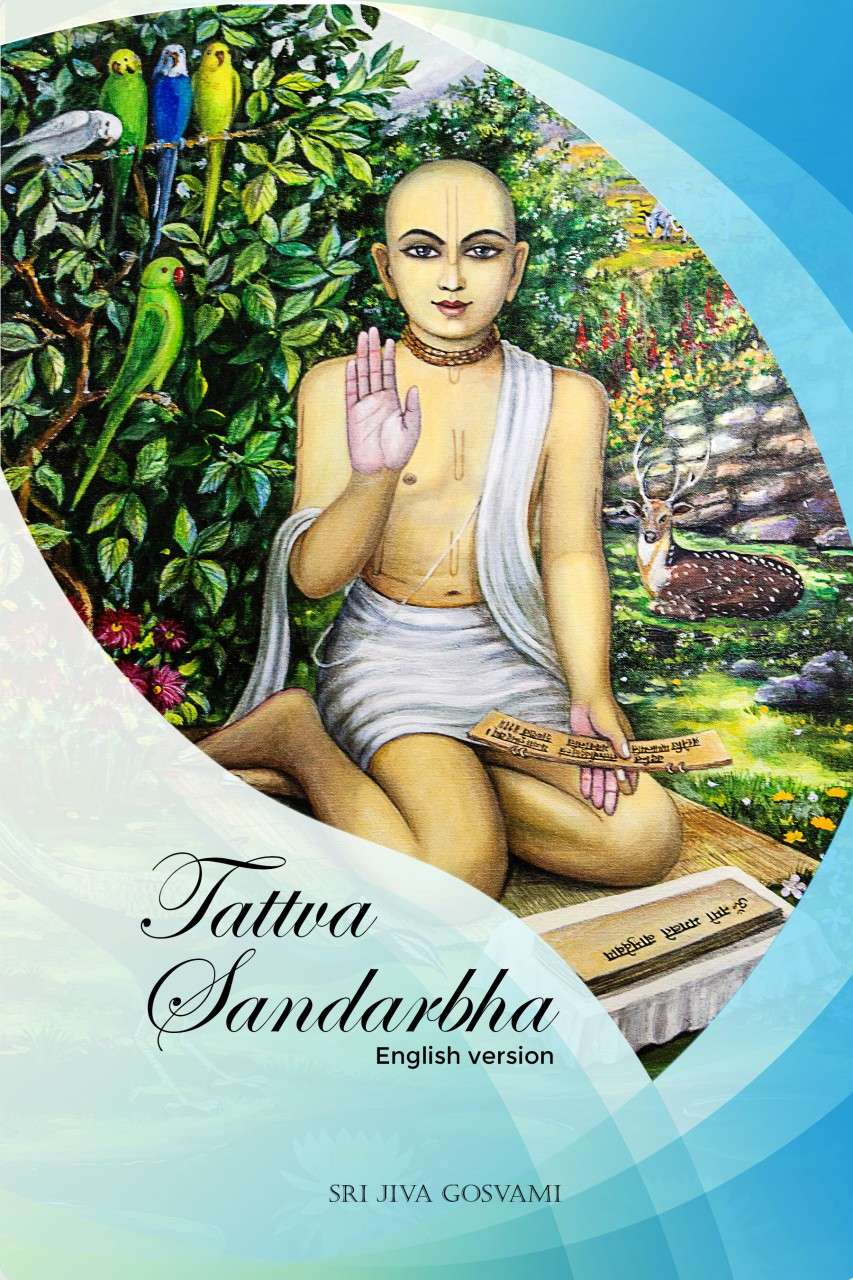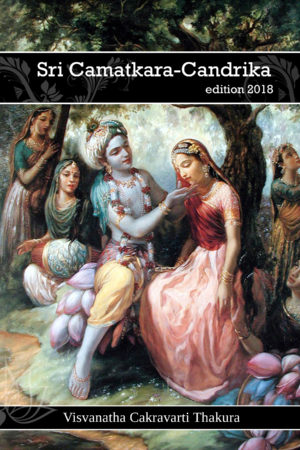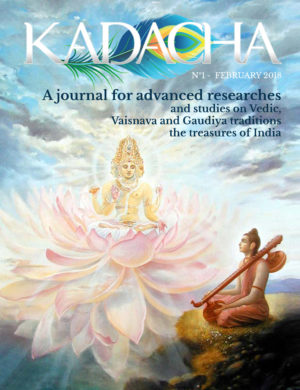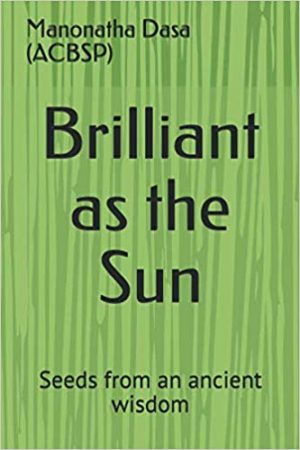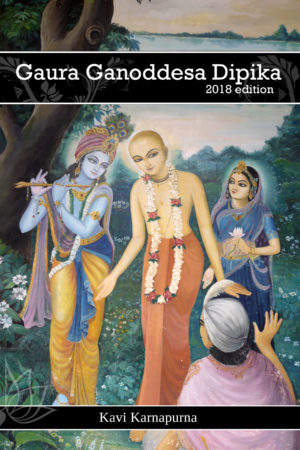Vaishnava philosophy is among the most fascinating precisely because of the characteristic of being perfectly compatible for both monastic and everyday life, that is, everyone can apply it and appreciate the results. Every thought, every action, and every word can become a devotional act. Even the things of the material world, so dangerous and opposed by ascetics, become instruments of devotional service (bhakti-yoga).
As the Bhagavadgita (9.27 and 28) says: “Whatever you do, whatever you eat, whatever you offer or give away, and whatever austerity you perform, do it, O son of Kunti, as an offering to Me.” “In this way you will free yourself from the captivity of labor and its favorable and unfavorable results. With your mind fixed on Me, and following this principle of renunciation, you will be set free and come to Me.”
Therefore, the devotional principle is superior even to that of renunciation. Reading this Tattva-sandarbha is an act of yoga, since it deals with the principles of truth expounded by great spiritual masters such as Jiva Gosvami, Baladeva Vidyabhusana and Bhaktivedanta Swami Prabhupada, from whom we have extracted the necessary elements for the realization of our work.
Index Introduction 9 Biography of Srila Jiva Gosvami Prabhupada 13 General notes 13 The six Gosvamis of Vrindavana 14 Early life 16 Arrival in Vrindavana 19 Criticism of Jiva Gosvami 21 His fame spreads 23 The temple of Radha-Damodara 23 The writings 24 Analysis of the writings 25 First Theme: Invoking and delimiting the main topic 29 Second Theme: The Master of Devotion, Caitanya Mahaprabhu 32 Third Theme: Sri Jiva Gosvami remembers his gurus 38 Fourth Theme: Jiva Gosvami takes up and perfects the work of Sri Gopala Bhatta 39 Fifth Theme: The gravity of the manipulation of sacred texts 41 Sixth Theme: Entering Tattva Sandarbha 42 Seventh Theme: The Three Aspects of Absolute Truth 43 Eighth Theme: The best tools to achieve knowledge 50 Ninth Theme: The Puranas are Vedic writings and are therefore the highest authorities 57 Tenth Theme: Srimad-Bhagavatam is the supreme of all the Puranas 63 Eleventh Theme: The Spiritual Master 77 Twelfth Theme: Liberated Souls Also Study Bhagavatam 81 Thirteenth Theme: Material Nature and Individual Souls 86 Fourteenth Theme: Material Nature Has the Function of Educating Souls 90 Fifteenth Theme: Neither matter nor jivas are one with the Supreme 93 Sixteenth Theme: Bhakti-yoga, devotional service to the Supreme Personality of Godhead 105 Seventeenth Theme: The Disciplines of Sadhana-bhakti 114 Eighteenth Theme: Further Comparison Between What Is Supreme and What Is Not 116 Nineteenth Theme: The Themes of Srimad-Bhagavatam 125 Twentieth Theme: The Characteristics of the Sacred Puranas 131 Conclusion 137 Glossary 138 Kadacha Editions 147

